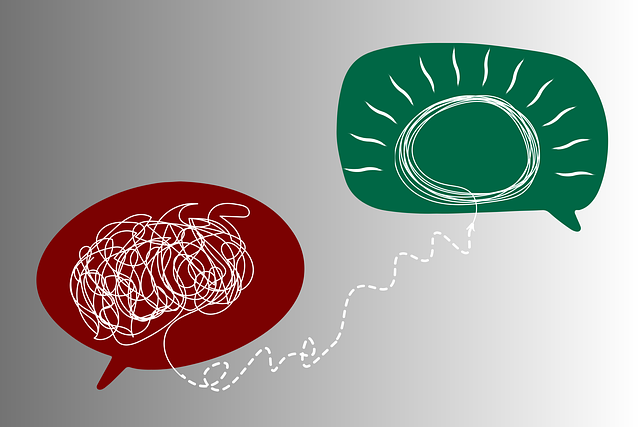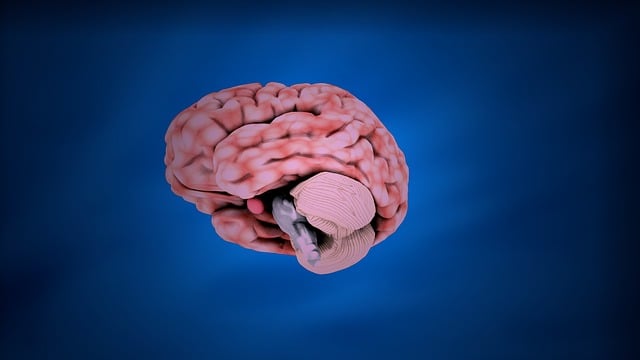Lakewood Crisis Counseling Therapy (LCCT) prioritizes cultural sensitivity in mental healthcare by addressing diverse community needs. Overcoming language barriers, staying informed about cultural trends, and integrating active listening and empathy into therapy sessions ensures tailored care for clients from various backgrounds. LCCT's inclusive practices, including multilingual resources, workshops, and awareness programs, build trust and enhance accessibility, aligning with Mind Over Matter principles to revolutionize mental health support in a multicultural landscape.
Cultural sensitivity is an essential aspect of mental healthcare, especially in diverse communities. This article explores the concept of cultural sensitivity in practice, focusing on its relevance in Lakewood Crisis Counseling Therapy (LACT). We delve into the challenges and barriers faced by therapists in providing culturally competent care, offering practical strategies to enhance patient outcomes. By understanding cultural nuances, LACT professionals can create a safe and supportive environment, ensuring effective therapy for all individuals, regardless of their background.
- Understanding Cultural Sensitivity in Mental Healthcare
- Challenges and Barriers in Lakewood Crisis Counseling Therapy
- Strategies for Practicing Culturally Sensitive Care in Mental Health
Understanding Cultural Sensitivity in Mental Healthcare

Cultural sensitivity in mental healthcare practice is an essential aspect that cannot be overlooked. It involves understanding and respecting diverse cultural beliefs, values, and practices to provide effective treatment tailored to each client’s unique background. At Lakewood Crisis Counseling Therapy, we recognize that mental health issues do not exist in a vacuum; they are deeply intertwined with cultural contexts. This awareness guides our approach, ensuring every individual receives care that aligns with their cultural identity.
Incorporating cultural sensitivity means being mindful of potential biases and barriers that may impact a client’s experience. Mental health professionals must be equipped to conduct thorough risk assessments, taking into account cultural factors that could influence vulnerability and coping mechanisms. By offering specialized services, such as stress management workshops tailored to diverse communities, organizations like Lakewood Crisis Counseling Therapy aim to foster inclusive practices. These initiatives not only enhance the effectiveness of treatment but also build trust between healthcare providers and clients from various cultural backgrounds.
Challenges and Barriers in Lakewood Crisis Counseling Therapy

The practice of Lakewood Crisis Counseling Therapy (LCC) faces unique challenges and barriers when it comes to cultural sensitivity. In a diverse community, counselors must navigate the intricate web of different cultural backgrounds, beliefs, and values to provide effective trauma support services. Understanding and respecting these differences are crucial in fostering emotional healing processes for individuals from various ethnic and socio-economic groups. LCC counselors require specialized training to address cultural nuances, ensuring they can offer tailored care that respects each client’s unique identity.
One of the primary obstacles is language barriers, which can hinder open communication and significantly impact the quality of therapy sessions. Effective counseling often relies on clear and concise dialogue, but when language differences exist, it becomes a challenge. LCC must employ strategies such as providing multilingual resources, employing qualified interpreters, or offering services in clients’ native languages to bridge this gap. Additionally, cultural misconceptions and stereotypes can create a thick wall between counselors and clients, making it essential for LCC therapists to stay informed about current cultural affairs, trends, and practices to deliver culturally competent care that aligns with Mind Over Matter principles.
Strategies for Practicing Culturally Sensitive Care in Mental Health

In practicing culturally sensitive care, mental health professionals at Lakewood Crisis Counseling Therapy (LCCT) employ several strategies. First, they actively listen to and validate clients’ cultural narratives, ensuring understanding through empathy rather than judgment. This involves learning about different cultural beliefs, practices, and values related to mental health, which can differ significantly from mainstream norms. LCCT therapists also integrate these insights into therapy sessions, tailoring interventions to respect and accommodate each client’s background.
Community outreach program implementation is another crucial aspect. By engaging with diverse communities, LCCT builds trust and accessibility. This involves hosting cultural awareness workshops, providing educational resources on stress reduction methods tailored to specific cultures, and offering services that are sensitive to language barriers and dietary considerations. Enhancing emotional intelligence within the therapy setting further fosters a culturally responsive environment where clients feel seen, heard, and respected for their unique identities.
Cultural sensitivity is an essential aspect of mental healthcare, especially in diverse communities like Lakewood. By understanding and addressing cultural differences, therapists can provide more effective care. Overcoming challenges and implementing strategies such as language accessibility, cultural competence training, and adaptive counseling techniques are crucial steps towards delivering culturally sensitive Lakewood Crisis Counseling Therapy. This approach ensures that individuals from various backgrounds receive tailored support, fostering better mental health outcomes.













